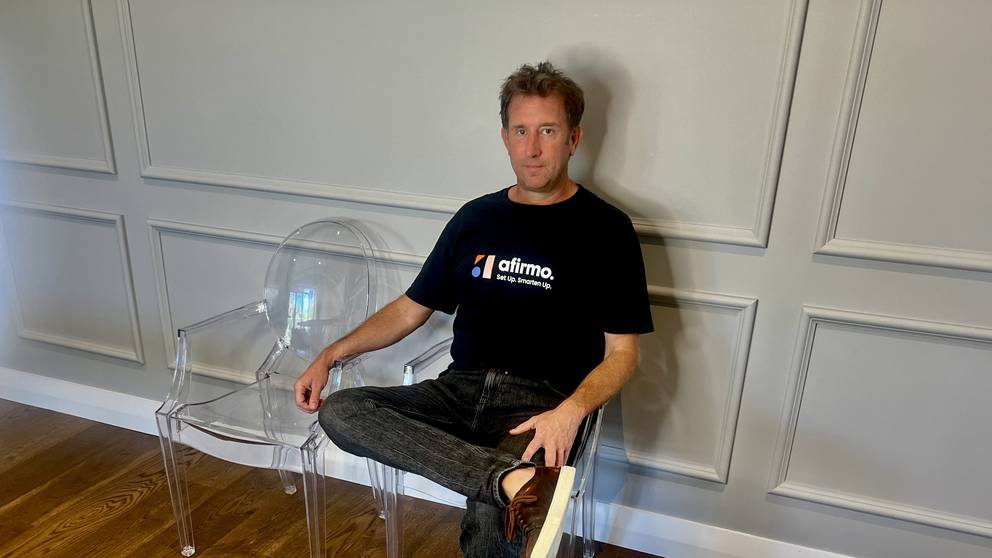The end of the tax year is approaching, and this brings with it the burden on business owners to maintain fastidious tax records, and to meet a range of IRD compliance requirements, which often change from year to year.
Tax software business Afirmo, has created a New Zealand first sophisticated solution for these business owners, that allows the small business owner to always know what tax they need to pay, and to be fully IRD compliant, and with no surprises.
“The end of the tax year brings a heightened level of stress for small business owners - “the responsibility of accurate and comprehensive tax filing looms large, with the need to navigate the complex web of tax regulations” says Robert Rolls, CEO of Afirmo.
“The time-intensive process of gathering, organising, and reviewing financial documents — often along with the ongoing demands of running their business can be particularly daunting. Also, errors can lead to costly penalties, adding financial risk to the mix.
This convergence of tasks not only strains the limited resources of many small businesses but also diverts attention from daily business operations and growth opportunities, further amplifying the anxiety associated with this critical time of year.”
Even basic compliance from some business owners can be tricky and knowing how much money to set aside for tax is an ongoing source of stress and uncertainty. It will be even more complex when the new Government adjusts the individual tax brackets in the next tax year.
That’s just one of many potential tax changes that will add to the challenges facing New Zealand’s small businesses.
“It’s the first time in many years the tax bands have been adjusted,” says Rolls – “It isn’t easy for small business owners to understand their obligations, what they can claim and what they can’t, and how to optimise it all. Then there’s the cashflow challenge – can they afford to pay the tax? Have they set enough aside? It’s a real cause of stress.”
If tax is causing stress, Rolls says now is the time to start investigating options to help manage it for this financial year and the future. With the right information, businesses can know exactly how much of the business’s cash balance is needed for tax payments and feel confident about how much can be used for other purposes.
Afirmo’s pricing for tax accounting is the same for sole traders, limited liability companies and partnerships, so there’s no limitation on who can benefit from the platform’s services. Plus, business owners who sign up with Afirmo in March 2024 will get their 2024 tax return done for free.
“Small business owners want to know they’ve done everything right,” Rolls says. “It’s a huge weight off their shoulders not to have to worry about tax, and to have all the information at their fingertips. We really want to help them get that ‘just filed’ feeling.”
Knowing what to set aside
Taxes can be both a significant cost and an enormous headache. Small business owners sometimes see all the cash in their accounts as ‘profits’, says Rolls, spending too freely when the cash is running high – rather than putting aside the correct amount for taxation. This is particularly the case when the business is not a provisional taxpayer.
Rolls believes business owners need a comprehensive understanding of how much tax they need to pay, so they can manage their cashflow more effectively and not find themselves in arrears or facing IRD penalties and interest.
The Afirmo platform does exactly that, acting as a tax agent and providing accounting advice and support. Customer’s don’t need to keep up with tax changes, don’t need to pay for an accountant, and can optimise their tax savings.
“There have been changes already to the information that self-employed people need to maintain, and the types of records they need to keep,” says Rolls. “With more changes likely to come, it means there’s a risk if you’re relying on outdated advice or old processes.
“By using the right platform like Afirmo, people can feel confident that, whatever tweaks are made to tax brackets or depreciation rates or deductibles, their tax information is up to date without them having to know all the latest tax regulations.”
First three years the toughest
Provisional tax can be a real trap for fledging businesses. At the end of year one, the small business may have paid no tax or set any funds aside. If they have turned enough profit in the opening period they will then have to pay tax as provisional taxpayers in subsequent years. This can cause huge cashflow issues.
“People aren’t necessarily saving for tax in that first year” Rolls says. “If they can see their tax position from the start, and throughout the first few years, that can help them be prepared to pay their taxes on time and not find themselves short of cash.”
Smaller businesses may also find that they exceed the $60,000 revenue threshold during their first or second year, meaning they must register for GST and start setting money aside to pay it. This adds another layer of complexity for a brand-new enterprise, and it means even less of the money sitting in the transactional account is pure profit. Ensuring you’ve saved enough to cover provisional tax and GST helps prevent nasty surprises and cashflow crises.
Rolls says Afirmo allows Kiwi business owners to manage their cashflow more closely, so they can use the cash set aside for tax payments, in an emergency or earn interest on it in a savings account or term deposit.
This provides flexibility and visibility during tax season, and throughout the year, so business owners can always know how much they owe and plan accordingly.




